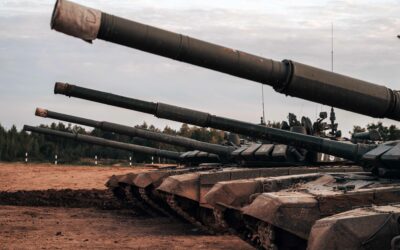Foreign Affairs
As wars rage in Europe and the Middle East, and China continues to rise as a threat to the United States, it’s easy for the U.S. to see foreign affairs through an outdated lens. The foreign policy of old leads with military engagement, nation building, and showing strength through combat.
But that isn’t sustainable and doesn’t make us safer at home.
The U.S. approach to foreign affairs needs a new vision, one that puts our vital interests first, leads with diplomacy, and only engages our military as a last resort.
Learn more about what this approach to foreign policy looks like in practice and how it would keep America safe.
Security guarantees are not free: The risks of ‘chain-ganging’
Since the end of the Cold War, one of the main goals of the foreign policy establishment in the United States has been the expansion of the NATO alliance. Following the collapse of the Soviet Union,...
Watch: U.S. needs to make sure fairness and benefit exist in alliances
In a new video series, Concerned Veterans of America Foundation lays out the case for examining how much the U.S. spends on defense compared to its NATO allies, how alliances affect U.S. interests, and how we should be viewing alliances moving forward.
4 questions we should be asking about United States participation in NATO
As the Russia-Ukraine War continues and Finland officially joins NATO, the alliance’s role supplying aid to Ukraine and the U.S.’ relationship with the alliance have been subjects of intense discussion. Here are four questions our leaders and the American people should be asking.
What is realism and restraint, and how does it equal a better foreign policy?
Most Americans sense there is something wrong with our foreign policy and want a change.
U.S. alliances: Here is what we should consider
Historically, under the right circumstances, alliances have often been prudent for protecting vital U.S. interests. Today, the heightened risk of conflict with nuclear-armed Russia requires us to approach our alliance relationships correctly so that we don’t unduly limit our ability to manage our relationships with our competitors and adversaries.
How the U.S. subsidizes European defense: The case for more equal NATO burden sharing.
The unequal state of defense spending and increasing U.S. challenges in other regions, such as Asia, are reviving calls for greater “burden sharing” within the alliance to reduce NATO’s dependency on the United States for its front-line defense.
Should the U.S. help Ukraine? How does the Russia and Ukraine war affect the U.S.?
In February 2022, the Russian Federation invaded Ukraine in what it called a “special military operation.” What followed was full-scale war of aggression. Since then, an estimated 40,000 Ukrainian...
How should the U.S. view its alliances? The past, the present, and the future of U.S. alliances
The continuing war in Ukraine has many observers debating the potential risks of Europe and the United States being drawn into a wider war with Russia. The conflict has also renewed discussion about...








